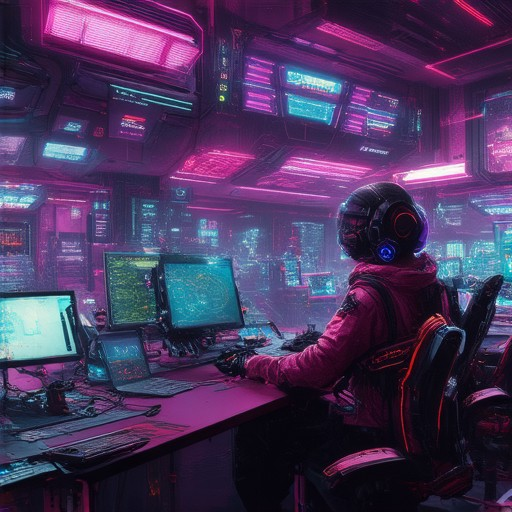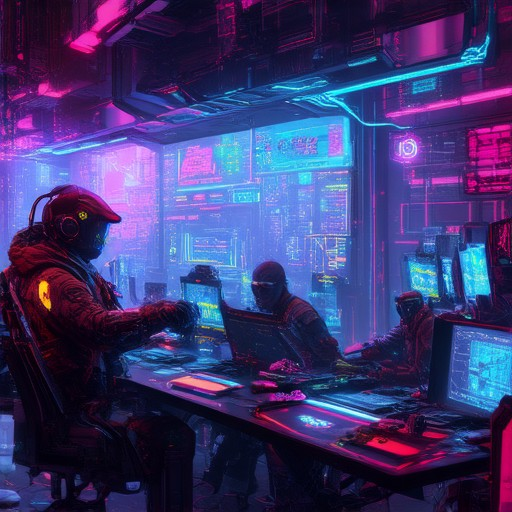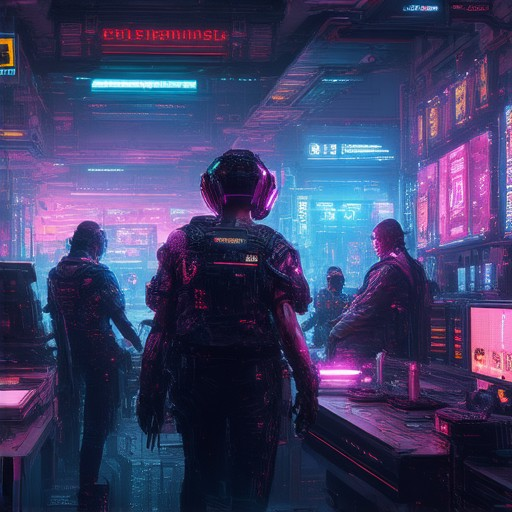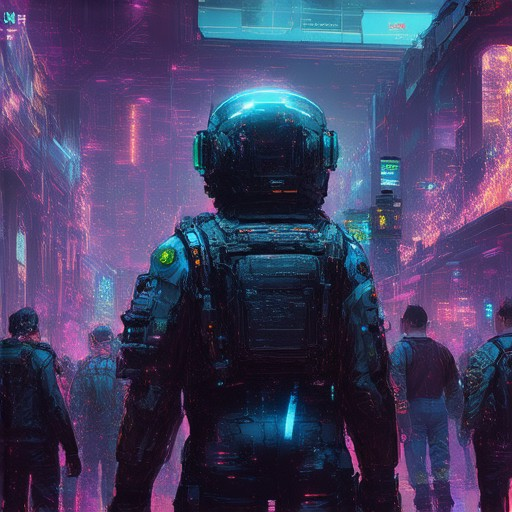Building a game community is essential for any gamer looking to connect with like-minded individuals, share experiences, and grow together. Whether you’re playing on Discord, Reddit, or even through console communities like Nintendo Switch, PlayStation, or Xbox, fostering a thriving gaming community can unlock endless opportunities for connection, collaboration, and fun. From understanding the platform dynamics of Discord and Reddit to leveraging engagement strategies that drive growth, this guide explores everything you need to know to build a vibrant and active gaming community. Discover how inclusivity, positivity, and effective moderation can create a welcoming space where players feel at home, and learn how to navigate the ins and outs of building a community that stands out in the competitive world of gaming.
Key Takeaways
- Why Join a Gaming Community?
- Network with fellow gamers and developers to collaborate and grow.
- Access valuable resources, tutorials, and exclusive content.
- Gain support, feedback, and build lasting connections.
- Where to Find Gaming Communities?
- Explore forums on platforms like TIGSource or Reddit.
- Join social media groups and Discord servers tailored to your interests.
- Discover events and meetups listed on platforms like Meetup or Eventbrite.
- Top Gaming Community Platforms:
- Reddit (r/Gaming), Twitch, YouTube, Discord, Steam, Facebook Gaming, Twitter.

How to Grow a Game Community?
To effectively grow your game community, follow these organized strategies:
1. Engage with Players Regularly
- Participate in live streams or Q&A sessions to build trust.
- Respond to player feedback promptly to foster loyalty and inclusivity.
2. Create a Strong Community Presence
- Establish a dedicated Discord server or forum for ongoing discussions.
- Promote your community through consistent updates and engagement opportunities.
3. Host Regular Events
- Organize seasonal events or competitions to encourage participation and highlight featured content.
- Use platforms like Twitch to stream these events and attract new members.
4. Listen to Feedback
- Implement changes based on community input to improve player experience and satisfaction.
- Use surveys or feedback threads to gather insights and demonstrate that player voices matter.
5. Collaborate with Influencers
- Partner with popular streamers or YouTubers who align with your game’s theme.
- Offer exclusive rewards or early access to creators who promote your game.
6. Utilize Social Media
- Post regular updates, behind-the-scenes content, and community highlights on platforms like Twitter and Instagram.
- Run contests or giveaways to increase visibility and engagement.
7. Offer Incentives
- Introduce referral systems where players gain benefits for inviting friends.
- Provide exclusive content or skins for active community members.
8. Build a Development Roadmap
- Share your game’s future plans with transparency to excite and retain your community.
- Update members on progress and release milestones to maintain interest.
9. Leverage Cross-Promotion
- Partner with other games or creators to cross-promote your community.
- Collaborate on joint events or promotions to expand your reach.
By implementing these strategies, you can build a thriving and engaged community around your game, fostering lasting connections with your players.
What Makes a Good Gaming Community?
A great gaming community is built on collaboration, engagement, and mutual respect. Here’s what defines a thriving gaming community:
- Active Moderation : A well-moderated community ensures a positive environment, fostering teamwork and sportsmanship. Moderators handle conflicts and keep discussions constructive.
- Inclusivity : A welcoming community embraces diversity, whether in age, skill level, or background. Inclusivity strengthens bonds and encourages growth.
- Clear Communication : Open channels for feedback and updates keep members informed. Clear rules and guidelines help maintain order and fairness.
- Engagement Opportunities : Regular events, tournaments, and in-game activities keep members active and invested. These events build camaraderie and excitement.
- Awareness of Competition : Understanding competitors’ strengths helps identify areas to improve. This awareness drives innovation and community growth.
By focusing on these elements, a gaming community becomes a supportive and dynamic space where everyone can thrive.

Gaming Communities Explained
Gaming communities are vibrant online spaces where individuals who share a passion for video games come together to connect, discuss, and engage with one another. These communities often revolve around a shared interest in specific games, genres, or platforms, creating a sense of belonging and collaboration.
Examples of Gaming Communities
- Reddit Subreddits: Platforms like Reddit host numerous subcommunities dedicated to gaming. For example, r/Games is a popular hub where users discuss news, reviews, and community events. Other subreddits like r/Fortnite and r/Overwatch cater to specific games, fostering deep connections among fans.
- Discord Servers: Discord is widely used for creating private servers where gaming communities can organize tournaments, share strategies, and communicate in real-time. Examples include servers for League of Legends, Minecraft, and Valorant.
- Twitch Channels: Twitch is a live-streaming platform where gamers broadcast their gameplay to thousands of viewers. Streamers often build communities around their content, creating a loyal fanbase through interactions like chat and subscriptions.
- YouTube Gaming Channels: Creators on YouTube build audiences by sharing gameplay videos, reviews, and let’s plays. Many of these channels have communities of dedicated viewers who comment, subscribe, and participate in discussions.
- Steam Groups: On Valve’s Steam platform, users can create groups to discuss games, share mods, and collaborate on projects. Groups like “Indie Dev Community” provide support and resources for independent game developers.
- Kongregate Forums: Forums like Kongregate serve as gathering places for gamers to discuss games, share tips, and participate in competitions. The platform hosts communities for a wide variety of games, from casual mobile titles to hardcore PC games.
Gaming communities thrive on collaboration and shared experiences. Whether through streaming, forums, or in-person meetups, these spaces empower individuals to connect, learn, and grow their passion for gaming.

What is a Game Community?
A game community is an online gathering of individuals who share a common interest in gaming. Whether it’s through video games, board games, or tabletop role-playing, these communities foster connections, collaboration, and camaraderie among enthusiasts. They often serve as hubs for sharing knowledge, discussing strategies, and exploring new experiences within the gaming world.
Examples of Gaming Communities
- Indie Dev Games – A platform dedicated to supporting independent game developers, offering resources like tutorials, reviews, and tips to help creators thrive.
Visit Indie Dev Games - TIGSource – Known for its extensive forums and wealth of information, TIGSource caters to developers and gamers alike, providing a space to discuss and explore various aspects of game creation.
Visit TIGSource - Reddit Gaming Subreddits – Home to numerous communities like r/gamedev and r/gameping, Reddit offers a vibrant space for gamers to engage in discussions, share content, and discover new games.
Visit Reddit - Discord Servers – Many gaming communities utilize Discord to create private spaces for collaboration, tournaments, and casual chats, bringing players and developers together.
Join Discord - Twitter Gaming Chats – Platforms like Twitter host regular gaming chats and discussions, connecting players and creators in real-time.
Visit Twitter - YouTube Gaming Channels – Creators on YouTube often build communities around their content, fostering relationships between viewers and content producers.
Visit YouTube - Twitch Streamers – Twitch is a hub for live streaming, where many gamers and developers interact with their audiences, forming tight-knit communities.
Visit Twitch
Benefits of Joining a Gaming Community
- Networking Opportunities : Connect with fellow gamers and developers to collaborate on projects or learn from each other.
- Access to Resources : Gain access to tools, tutorials, and advice from experienced creators.
- Support and Feedback : Get feedback on your own projects and find inspiration from others’ work.
- Exclusive Content : Some communities offer unique content, events, and opportunities available nowhere else.
How to Find and Join a Gaming Community
- Online Forums : Explore forums like those on Indie Dev Games or TIGSource to find like-minded individuals.
- Social Media Groups : Join Facebook groups, Reddit communities, or Twitter chats related to your interests.
- Discord Servers : Search for active servers that align with your gaming or developmental goals.
- Event Listings : Keep an eye on event platforms like Meetup or Eventbrite for local or virtual gatherings.
By becoming part of a game community, you unlock valuable resources, build meaningful connections, and contribute to the growth of the gaming industry. Whether you’re a developer, a player, or just a casual enthusiast, these communities offer something for everyone.
The Most Popular Game Community
Several platforms have emerged as hubs for gaming communities, each attracting millions of users worldwide. Here are some of the most prominent ones:
- Reddit – r/Gaming : With over 50 million subscribers, Reddit’s gaming community is one of the largest online forums dedicated to discussing games, sharing news, and debating gameplay. Users often share trailers, reviews, and discuss upcoming releases.
- Twitch.tv : A live-streaming platform that has become synonymous with gaming culture. Twitch hosts millions of live streams daily, featuring gameplay, tournaments, and Q&A sessions with popular streamers. It has a global audience and is particularly popular among younger viewers.
- YouTube Gaming Channels : Many of the biggest YouTubers focus on gaming content, with channels like PewDiePie, Ninja, and Shroud amassing massive followings. These channels often feature gameplay walkthroughs, reviews, and let’s plays.
- Discord Servers : While not a single centralized community, Discord hosts thousands of server communities centered around specific games like Minecraft, League of Legends, and Fortnite. These servers facilitate communication, coordination, and fan discussions.
- Steam Community : As the primary platform for Valve’s Steam service, the Steam Community is a treasure trove of game-related content. It features forums, user profiles, and extensive databases of game information, making it a go-to resource for gamers.
- Facebook Gaming : Facebook has become a significant player in the gaming community, with its Gaming tab hosting live streams and highlights from professional gamers and influencers. It reaches a broad demographic due to its widespread user base.
- Twitter Gaming : Twitter is a hotbed for gaming news, updates, and real-time discussions. Many gamers and influencers use Twitter to engage with fans, share content, and participate in trending conversations around games and esports.
These platforms collectively form the backbone of modern gaming culture, providing entertainment, information, and social interaction for gamers worldwide.

What Do You Call a Gaming Community?
A gaming community is typically referred to as a clan , guild , or community . Here’s a breakdown of these terms:
- Clan : A group of players who join forces to tackle challenges that require teamwork, often in multiplayer games or competitive matches.
- Guild : Similar to a clan, a guild is usually found in MMORPGs, where members collaborate on quests, raids, and other in-game activities.
- Community : A broader term that encompasses any group of gamers sharing a common interest, whether it’s a specific game or the broader gaming culture.
- Tribe : Sometimes used to describe smaller groups within a larger community, often focused on shared interests like modding or creating custom content.
These terms highlight the diverse ways people connect and engage in gaming. Whether you’re part of a clan, guild, or wider community, joining a group can enrich your gaming experience through collaboration and camaraderie.




0 Comments